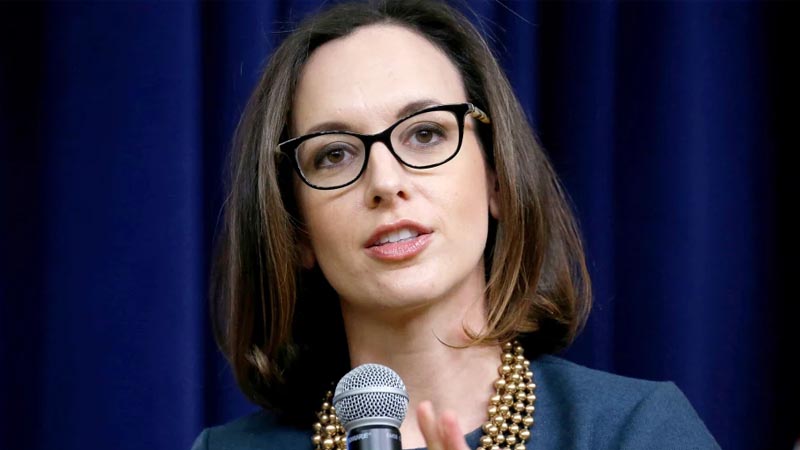Sarah Isgur, a former spokesperson for the Department of Justice under the first Trump administration, cast doubt on President-elect Donald Trump’s effort to delay a law banning TikTok by pushing the Supreme Court to intervene.
The legislation passed by Congress gives President Joe Biden the authority to ban TikTok by January 19, unless its parent company, ByteDance, severs ties with the Chinese government. However, Trump has sought to delay the law until he takes office a day later, suggesting he would find a way around the ban after praising TikTok for its role in his 2024 election campaign.
During a panel discussion on ABC’s This Week on Sunday, Isgur explained that the Supreme Court is set to hear expedited oral arguments on January 10, with the goal of making a decision before the January 19 deadline. “The Supreme Court is set to hear expedited oral argument on January 10th,” Isgur said. “That’s so that they can decide this case ahead of the January 19th deadline.”
Isgur also criticized Trump’s legal brief, describing it as an example of the “imperial presidency” and a reflection of his disregard for Congress’s role. “Interestingly, I think that Donald Trump’s brief is this great example of the logical conclusion of the imperial presidency, the idea that Congress doesn’t matter throughout the brief,” she explained.
“It’s like, oh, Congress said this, but the president is in charge. The president needs to be able to do this. President Trump alone.” According to Isgur, Trump’s brief to the Supreme Court resembled more of a press release than a formal legal argument. “The Supreme Court probably puts them on their heels to be against whatever he just filed,” she remarked. “Looks more like [Trump speechwriter] Stephen Miller wrote it.”
Isgur also predicted that the Supreme Court would likely rule against Trump’s request to delay the TikTok ban. “There is some chance that they could decide another way,” she said, “But I think TikTok will have to divest.”
The ongoing legal battle over the fate of TikTok highlights the tension between executive power and legislative authority, with Trump’s attempt to delay the law now under the scrutiny of the highest court in the land.

